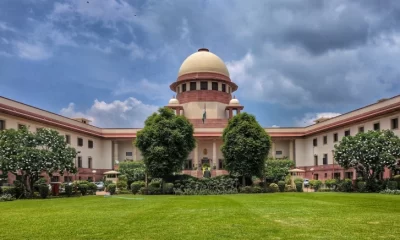

More in Nation
-


Nation
US Cannot Dictate Terms to India, Says Tucker Carlson
Former Fox News host Tucker Carlson has declared that the United States can no longer dictate...
-


Nation
Seven High-Speed Rail Corridors to Transform India’s Urban Connectivity
In her ninth consecutive Union Budget presentation on February 1, 2026, Finance Minister Nirmala Sitharaman unveiled...
-


Nation
Maharashtra Deputy CM Ajit Pawar Dies in Baramati Plane Crash
Fatal Crash Claims Six Lives A devastating aircraft tragedy struck Maharashtra early Wednesday morning when a...
-


Nation
India and EU Sign Historic Free Trade Agreement
Prime Minister Narendra Modi announced on Tuesday the signing of the India-EU Free Trade Agreement (FTA),...
-


Nation
Trump Confident on India-US Trade Deal, Praises Modi
US President Donald Trump expressed optimism about the proposed India-US Bilateral Trade Agreement (BTA), asserting that...



























